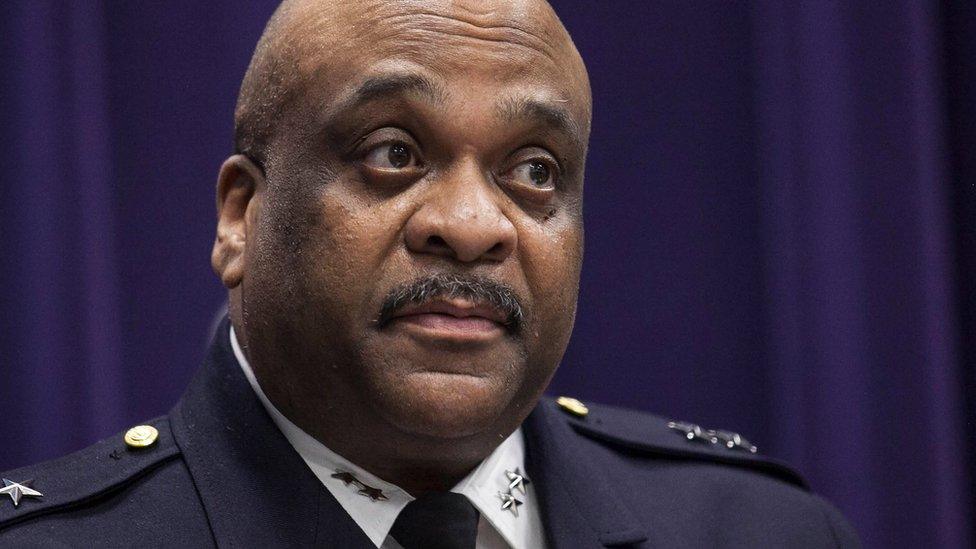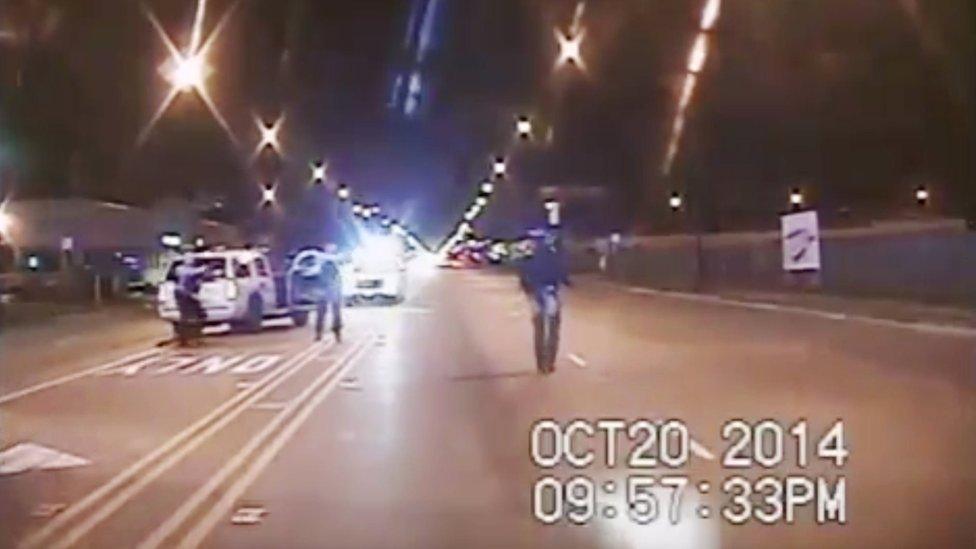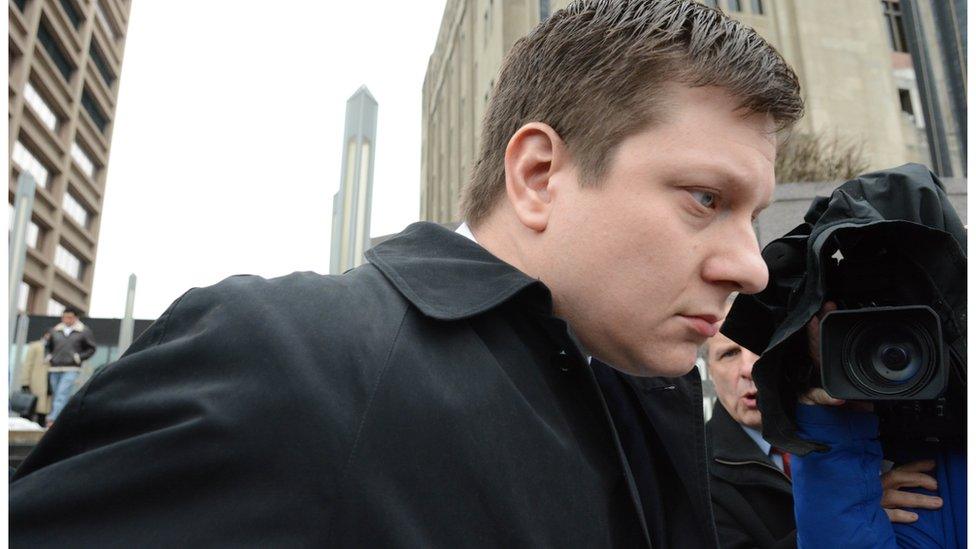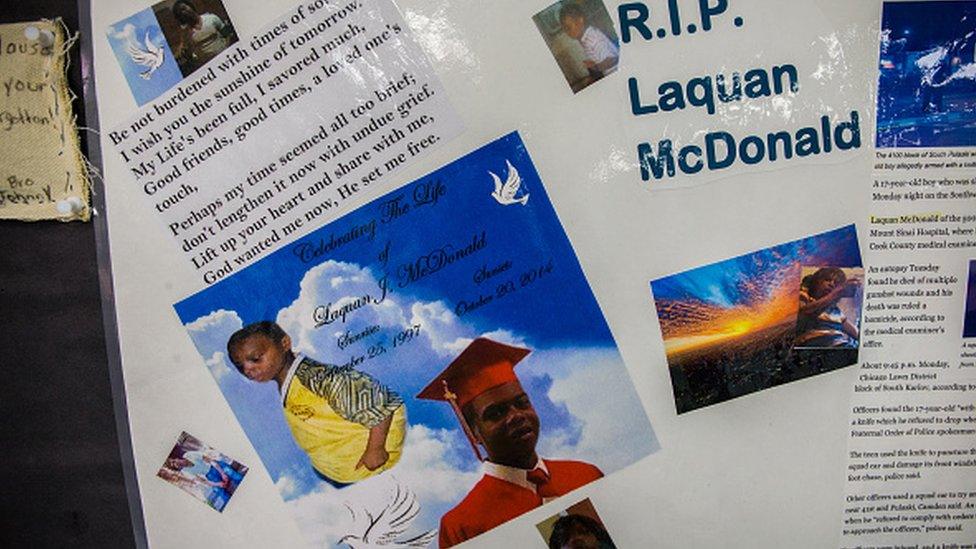Eddie Johnson: Chicago new police chief to face 84% murder rate increase
- Published

Mr Johnson is a 27-year veteran of the Chicago police
Chicago's troubled police force has a new boss, as new figures show the city's murder rate up 84% in the first months of 2016 compared with last year.
Police veteran Eddie Johnson, the new interim police chief, is the third superintendent to lead the department in less than four months.
He takes office following public anger over the shooting of black teenager Laquan McDonald by a white officer.
However, violent crime is reportedly below levels of two decades ago.
According to the crime figures on the police department's website, external, there were 575 shootings and 125 murders in 2016 until 20 March.
In the same period last year there were 290 shootings and 68 murders in the city, which has long been troubled by violence.
Despite the spike, this year's numbers are below those of the early 1990s, when Chicago faced a crack epidemic and the homicide rate was around 900, a report suggested., external
Nevertheless, a group of churches celebrated that Easter Sunday saw no homicides in the city, with one religious leader calling it "an amazing gift".
'Trust issue'
Mr Johnson, a 55-year-old African-American who has been with the police for 27 years, replaces Garry McCarthy, who quit amid the furore surrounding the McDonald case.
The shooting sparked days of protests and led the US Justice Department to open an investigation into Chicago police shootings.

Release of dash-cam video of the shooting sparked protests
McDonald, who was 17 at the time, was armed with a knife when he was stopped by police in 2014. He was shot 16 times.
Reacting to his nomination on Monday, Mr Johnson said he would address what he described as a trust issue.
"It is the central challenge facing Chicago today. I know that... trust has been broken too often, not just in Chicago but across America where abusive police practices have occurred," he told a news conference.
- Published29 December 2015

- Published24 November 2015
